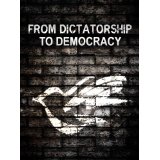Revelations of secret bombing in Yemen bring President Obama closer to Lyndon Baines Johnson and Richard Nixon and their secret bombings of Laos and Cambodia during the Vietnam War than is appropriate for any Nobel Peace Laureate. How many wars is this President going to start? As many as the American people will allow.
Der Spiegel reports that the Pentagon released the remaining papers of the Pentagon Papers while admitting that lies were told about the war. We know that. But here it is from them. The four volumes of the Gravel Papers can be accessed through Der Spiegel by clicking on the link below. How many more lies will the U.S. government tell the American people and the international community? As many as the American people will allow.
Are NATO's allies child soldiers? Isn't that against the law? So what else is new with this war? How long will war crimes and crimes against humanity be committed by NATO? As long as the American people allow these crimes to be committed.
Please see these:
1. Libyan rebel group sells first oil to U.S.
2. Hedge funds ‘grabbing land' in Africa
3. Children work with weapons to aid Libya's rebels
Silence is the deadliest weapon of mass destruction.








